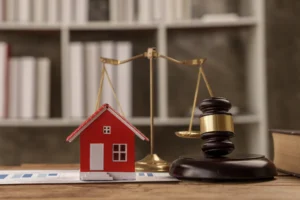Introduction
Dishwashers are designed to make cleaning dishes easier, but when soap residue lingers, it can be frustrating. Many JVC residents face this common issue, which can be caused by improper detergent use, hard water, or clogged filters. In this guide, we will explore why your dishwasher leaves soap residue and provide effective solutions to keep your dishes spotless.
Common Causes of Soap Residue in Dishwashers
Soap residue buildup can be due to several reasons, including:
- Using Too Much Detergent: Excessive detergent can leave behind a filmy residue on your dishes.
- Hard Water Issues: Minerals in hard water can interfere with detergent dissolution.
- Low Water Temperature: Insufficiently hot water can prevent proper detergent breakdown.
- Clogged Spray Arms: Blockages in spray arms can reduce water flow, leading to poor rinsing.
- Faulty Rinse Cycle: A malfunctioning rinse cycle can leave detergent behind.
- Old or Expired Detergent: Using expired detergent may result in ineffective cleaning.
Step-by-Step Solutions to Remove Soap Residue
If your dishwasher is leaving soap residue, follow these steps to resolve the issue:
Check Detergent Usage
Use the recommended amount of dishwasher detergent. High-efficiency models require less soap, and using too much can leave a filmy residue. Consider switching to a high-quality detergent designed for hard water conditions.
Inspect Water Temperature
Ensure that your dishwasher water temperature is at least 120°F (49°C) for effective detergent breakdown. If your water heater is set too low, increase the temperature to improve cleaning performance.
Clean the Dishwasher Interior
Regularly clean your dishwasher by running a cycle with white vinegar or a commercial dishwasher cleaner. This helps remove built-up soap scum and mineral deposits that cause residue.
Unclog Spray Arms
Check and clean the spray arms to ensure proper water distribution. Remove any food particles or debris stuck in the spray holes.
Use Rinse Aid
A rinse aid helps prevent soap residue and enhances drying performance. Ensure your dishwasher’s rinse aid compartment is filled for optimal results.
Check Water Hardness
JVC residents often experience hard water, which can contribute to soap residue. Installing a water softener or using a dishwasher detergent designed for hard water can significantly reduce residue buildup.
Inspect the Drain Filter
A clogged filter can trap soap and food particles. Remove and clean the dishwasher filter regularly to improve performance and eliminate residue.
When to Seek Professional Help
If you’ve tried these solutions and still experience soap residue, it may be time to contact a professional. Dishwasher Repair in Jumeirah specialists can inspect your unit and address any underlying issues.
FAQs
1. Why is my dishwasher leaving white residue on dishes?
White residue is often caused by hard water minerals or excess detergent. Using a rinse aid and adjusting detergent usage can help.
2. Can I use vinegar to clean my dishwasher?
Yes, running an empty cycle with a cup of white vinegar can help remove soap scum and mineral deposits.
3. What is the best detergent to prevent soap residue?
Choose a high-quality, phosphate-free detergent designed for your water type. The JVC Services Providers can recommend suitable products for JVC residents.
4. How often should I clean my dishwasher filter?
It’s best to clean your dishwasher filter once a month to prevent soap and food buildup.
5. Where can I find reliable dishwasher repair services in JVC?
For expert repair services, visit The JVC Tech Location to locate trusted professionals in your area.
By following these tips, JVC residents can enjoy cleaner dishes and a more efficient dishwasher. Regular maintenance and proper detergent usage are key to preventing soap residue buildup and ensuring optimal performance.










